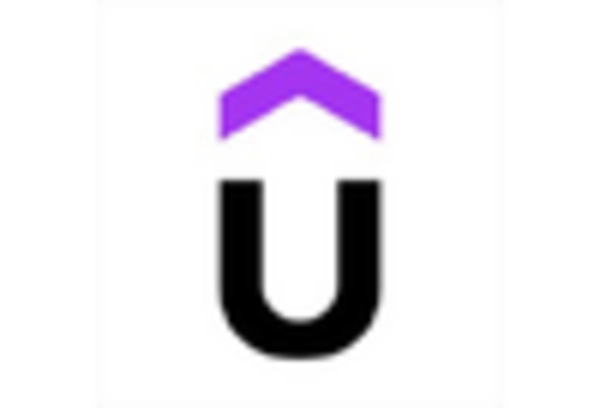Emphasis on Continuous Learning Culture
The micro learning market is benefiting from an increasing focus on fostering a continuous learning culture within organizations. Companies are increasingly recognizing that ongoing education is essential for maintaining a competitive edge. This cultural shift encourages employees to engage in lifelong learning, aligning with the principles of micro learning. As a result, organizations are investing in micro learning solutions to support this initiative. Reports indicate that organizations with a strong learning culture experience 30-50% higher employee engagement rates. This suggests that the micro learning market is well-positioned to thrive as companies prioritize employee development.
Rising Demand for Flexible Learning Solutions
The micro learning market is experiencing a notable surge in demand for flexible learning solutions. As organizations increasingly recognize the need for adaptable training methods, micro learning offers a viable alternative to traditional learning approaches. This shift is particularly evident in sectors such as technology and healthcare, where rapid changes necessitate continuous skill development. According to recent data, approximately 70% of employees prefer learning in short, digestible formats, which aligns with the principles of micro learning. This trend indicates a significant opportunity for providers in the micro learning market to cater to the evolving preferences of learners, thereby enhancing engagement and retention rates.
Cost-Effectiveness of Micro Learning Solutions
Cost-effectiveness is emerging as a significant driver in the micro learning market. Organizations are continually seeking ways to optimize training budgets while maximizing the impact of their learning initiatives. Micro learning offers a more economical approach compared to traditional training methods, as it requires less time and resources to implement. Studies indicate that companies can save up to 50% on training costs by adopting micro learning strategies. This financial incentive is likely to attract more organizations to invest in micro learning solutions, thereby propelling growth within the micro learning market.
Increased Focus on Employee Performance Metrics
The micro learning market is increasingly influenced by a heightened focus on measurable employee performance metrics. Organizations are now more data-driven in their approach to training, seeking measurable outcomes to assess the effectiveness of their learning initiatives. Micro learning, with its ability to deliver targeted content and track learner progress, aligns well with this trend. By utilizing analytics, companies can evaluate the impact of micro learning on employee performance, leading to more informed decisions regarding training investments. This focus on performance metrics is likely to drive further adoption of micro learning solutions as organizations strive for continuous workforce improvement.
Technological Advancements in Learning Platforms
Technological advancements are playing a pivotal role in shaping the micro learning market. The integration of artificial intelligence and machine learning into learning platforms allows for personalized learning experiences tailored to individual needs. This customization enhances the effectiveness of training programs, making them more appealing to organizations. Furthermore, the proliferation of mobile devices facilitates on-the-go access to micro learning content, thereby increasing its adoption. Data suggests that the market for learning management systems is projected to reach $15 billion by 2025, highlighting the potential for growth within the micro learning market as organizations seek innovative solutions to enhance employee training.
















